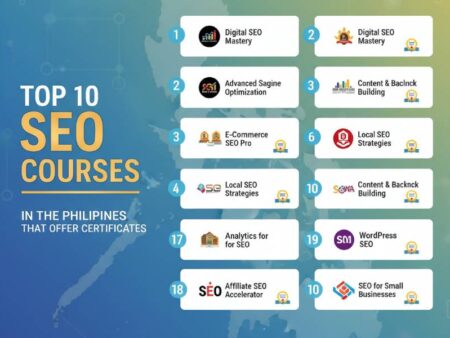
In the world of local SEO, there are a lot of strategies that can boost your online visibility, but two stand out as critical: white hat citations and NAP consistency.
If you’re running a local business, getting these two right can mean the difference between ranking at the top of Google’s local search results or being buried where no one ever looks. This guide will help you understand what these are, why they matter, and how to execute them like a pro.
What Are Local Citations?
Citations are simply mentions of your business’s Name, Address, and Phone number (NAP) on other websites, especially local business directories. A white hat citation strategy refers to earning or placing citations through ethical, search-engine-approved methods.
These citations don’t always include a link, but search engines still use them as trust signals to evaluate the legitimacy and authority of your business.
Examples of Citation Sources:
- Google Business Profile
- Yelp
- YellowPages
- Bing Places
- Apple Maps
- TripAdvisor (for relevant niches)
- Industry-specific directories (e.g., Avvo for lawyers, Healthgrades for doctors)
White hat citations should always reflect real, accurate, and up-to-date business information. No tricks, no keyword stuffing, and absolutely no fake listings.
Why Are Citations So Important?
Local search engines (Google, Bing, etc.) want to give users the most accurate and reliable results possible. Citations act like digital proof that your business is legitimate and operating where you say it is.
Here’s what proper citations can do for your business:
- Boost your rankings in local search results
- Increase visibility in Google’s local 3-pack
- Build trust with customers.
- Drive referral traffic from citation sites.s
- Reinforce your brand’s local presence.
What Is NAP Consistency?
NAP stands for:
- Name
- Address
- Phone Number
NAP consistency means that your business information is the same across every online platform, right down to the formatting and spelling.
Google expects uniformity. If your business name appears as “Bob’s Tacos” on Google but as “Bob’s Taco Shop” on Yelp, that small inconsistency can confuse both search engines and potential customers.
NAP Consistency Covers More Than Just Spelling:
- “Street” vs “St.”
- “Suite” vs “Ste.”
- Local area code vs. toll-free number
- Address abbreviations or variations.
- Business name variations (e.g., LLC, Inc.)
Even seemingly minor differences can dilute your local SEO power.
The Risks of Inconsistent NAP Data
If your NAP information is inconsistent across platforms, several problems can arise:
1. Lower Local Search Rankings
Google may struggle to verify your business’s legitimacy. This can lead to reduced trust and lower visibility in search results.
2. Poor Customer Experience
Imagine someone calls the wrong number or shows up at an outdated address. Bad data equals lost trust and lost sales.
3. Duplicate Listings
Inconsistencies often lead to multiple versions of your business being listed online, confusing both users and search engines.
How to Audit Your Current Citations
Before diving into citation building, do a NAP audit to identify inconsistencies.
Manual Audit:
- Search your business name in quotes:
“Your Business Name” - Look through the top 3–5 pages of Google.
- Check each listing for correctness:
- Business name
- Address (down to suite or unit number)
- Phone number
- Website URL
- Document inconsistencies in a spreadsheet.
Tools That Can Help:
- Whitespark
- BrightLocal
- Moz Local
- Semrush Local
- Yext
These tools can scan citation networks and flag discrepancies.
How to Fix Inconsistent Citations
1. Claim and Verify Your Listings
Start with major directories: Google, Yelp, Bing, Facebook. Claim your listings and make sure they are under your control.
2. Standardize Your NAP Format
Decide on a standard version of your business name, address, and phone number, then use it consistently across every platform.
Pro Tip: Create a “NAP style guide” and share it with your team to ensure consistency in the future.
3. Update Listings Manually
Go into each platform and update the info manually. Yes, it takes time—but it’s well worth it.
4. Submit to Aggregators
Data aggregators like Factual, Neustar Localeze, and Infogroup distribute business information to hundreds of smaller directories. Make sure your info is correct at the source.
Building High-Quality White Hat Citations
1. Start with Core Directories
These are trusted sites where every local business should be listed:
- Google Business Profile
- Yelp
- Apple Maps
- Bing Places
- BBB (Better Business Bureau)
2. Add Industry-Specific Citations
These add niche authority and often drive qualified leads.
Examples:
- Lawyers: Justia, Avvo, FindLaw
- Restaurants: TripAdvisor, Zomato
- Contractors: HomeAdvisor, Houzz
3. Find Local Opportunities
Search for “[Your City] business directory” or “[Your Industry] + [City] listings” to uncover local directories.
4. Look at Competitor Citations
Use tools like Whitespark or BrightLocal to see where your competitors are listed, then get yourself added.
5. Don’t Overdo It
Citations are about quality, not quantity. Dozens of low-quality or spammy directories can hurt more than help.
Maintaining Your NAP Consistency Over Time
1. Use a Single Source of Truth
Keep your NAP information saved in one document or database that your team refers to when making updates.
2. Monitor Your Listings Regularly
Set a reminder every quarter to re-check your citations and make sure they haven’t changed.
3. Set Alerts for Mentions
Use Google Alerts to get notified when your business is mentioned online—then check that the NAP is accurate.
4. Update NAP Immediately After Any Change
Moved to a new location? Changed phone numbers? Update your citations immediately across all platforms.
Bonus Tips: Boosting Your Local SEO Even Further
While citations and NAP consistency are foundational, combine them with other strategies for maximum impact:
1. Optimize Your Google Business Profile
- Add photos
- Post updates regularly
- Encourage and respond to reviews.
- Use relevant categories
2. Localize Your Website Content
Create service pages and blog posts with location-specific keywords.
3. Embed a Google Map on Your Contact Page
Make it easy for users to find you and for Google to verify your location.
4. Get Local Backlinks
Reach out to local bloggers, news outlets, and community websites for backlinks.
Common Mistakes to Avoid
Submitting to Spammy Directories
Low-quality, irrelevant sites can trigger penalties or dilute your SEO signals.
Ignoring Mobile Formatting
Many citation sites are mobile-first. Ensure your NAP looks clean and clickable on smartphones.
Using Tracking Phone Numbers Without Caution
If you use tracking numbers, make sure to implement them using schema markup or dynamic insertion, so they don’t mess up your NAP consistency.
Conclusion
Building white hat citations and maintaining NAP consistency aren’t flashy tactics—but they’re among the most powerful, trustworthy, and effective tools in your local SEO toolkit.
Think of them as the foundation of your digital presence. If your citations are clean and your NAP is consistent, you’ll earn Google’s trust—and the trust of real-world customers, too.
Take the time to audit, update, and optimize your local listings. It might not be glamorous, but it works. And in the long run, it can help drive more traffic, more leads, and more sales right to your doorstep.
Frequently Asked Questions (FAQ)
What are white hat citations in local SEO?
White hat citations are legitimate mentions of your business name, address, and phone number (NAP) on trusted directories and websites to improve local search visibility and credibility.
Why are accurate citations important for local SEO?
Accurate citations ensure consistency across the web, helping search engines trust your business details, improving local rankings, and preventing confusion among potential customers looking for your services.
Where should I build white hat citations?
Focus on high-authority directories like Google Business Profile, Yelp, Bing Places, and industry-specific platforms. These trusted sites boost your local SEO and attract targeted traffic.
How often should I update my citations?
Regularly audit citations—at least every 6–12 months or after business changes. Keeping your NAP details consistent across platforms maintains SEO effectiveness and avoids ranking penalties.
Can white hat citations improve my Google Maps ranking?
Yes, consistent and quality citations signal to Google that your business is trustworthy, helping improve your presence on Google Maps and in the local pack search results.
What Are You Waiting, Enroll Now!
Learn More!Subscribe to this Page
Average rating 5 / 5. Vote count: 245
Share on Social Media
Related Posts
- Why White Hat SEO Matters for Long-Term Website Success
- AI-Generated Content: What You Need to Know
- SEO Online Courses with Certificate in the Philippines
- How to Do SEO on Shopify
- Website Ranking vs. Traffic: Which Should You Focus On?








